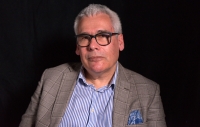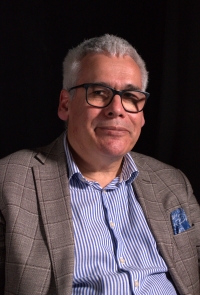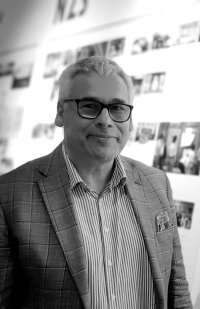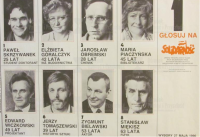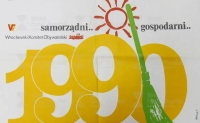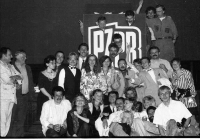The Communists had no sense of humour and couldn‘t cope with the Orange Alternative

Stáhnout obrázek
He was born on 25 November 1965 in Wroclaw to parents who moved to Wroclaw after the Second World War. After the formation of the independent trade union movement Solidarity, he joined the independent Student Committee for Social Renewal (UKOS) at the Juliusz Słowacki Gymnasium in Wrocław, which operated until the declaration of martial law on 13 December 1981. From 1982 he distributed underground magazines. During his undergraduate studies in history at the University of Wrocław (1986-1989) he was an activist of the underground Independent Students‘ Association (NZS, Niezależne Zrzeszenie Studentów). In 1987-1989 he was involved in the activities of the opposition group Polish-Czech-Slovak Solidarity. From April 1988 to January 1989, he participated in student strikes for the legalization of the Independent Association of Students (NZS). He took part in the organization of the Festival of Independent Czechoslovak Culture, which took place on 3-5 November 1989 in Wrocław. In 1990-1994 he served as a councillor of the Wrocław City Council. He then worked in managerial and advisory positions in state and non-state organisations (Hotel Tumski, Wrocławskie Centrum SPA, Uzdrowisko Szczawno-Jedlina). Since August 2023 he has been the director of the sanatorium in Sopot. He is a member of the Polish-Czech-Slovak Solidarity Foundation. In May 2023 he lived in Ramiszów near Wrocław.
